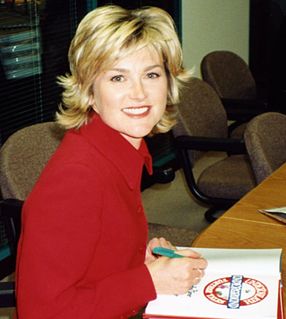A Quote by Mel B
I know about investment. It's really obvious - you buy property, let it sit for a couple of years and then sell it and reinvest.
Related Quotes
Don't try to buy art as an investment. Buy something you really love because you're going to have to look at it again tomorrow. And an investment can go up or down. Buy something you really adore, you really like, and you want to live with. And if you decide some years later you don't want to live with it anymore, sell it. Get out.
In real estate you can avoid ever having to pay a capital gains tax, decade after decade, century after century. When you sell a property and make a capital gain, you simply turn around and buy a new property. The gain is not taxed. It's called "preserving your capital investment" - which goes up and up in value with each transaction.
Home, the idea of home, is my principal purpose. If people have bought a house as an investment or chosen the furniture because they'll be able to sell it for more, you can tell in two minutes. You know, our parents didn't buy a house as an investment. They bought it as a place to bring you up, to give you roots.
Why shouldn't people be able to buy movie tickets on Amazon? Or Google or Flixster, or IMDb? I don't care who you have a relashionship with. This isn't about Fandango or MovieTickets. This is about you. Where do you buy stuff? Are you an Amazon Prime member? Then I want to be on Amazon Prime. Are you a Yahoo guy? Then I want to sell on Yahoo. Are you a Google guy? Then I want to sell tickets on Google.
The thing to do with mutual funds is to buy a couple of decent ones, set up an investment plan and then never, ever think about them again, except maybe once a quarter or so when you take a peek at your statements to make sure that you have not accidentally been buying the Fidelity Peace-in-the-Middle-East fund.
You buy furniture. You tell yourself, this is the last sofa I will ever need in my life. Buy the sofa, then for a couple years you're satisfied that no matter what goes wrong, at least you've got your sofa issue handled. Then the right set of dishes. Then the perfect bed. The drapes. The rug. Then you're trapped in your lovely nest, and the things you used to own, now they own you.
Allowing short selling is allowing people to sell - instead of having to buy the stock and then sell it, which doesn't do much; allow them to sell it, and then buy it. In which case they can express that information and the idea is that you would get more accurate valuation of companies by letting people express both their positive information and their negative information through either long or short selling.




































